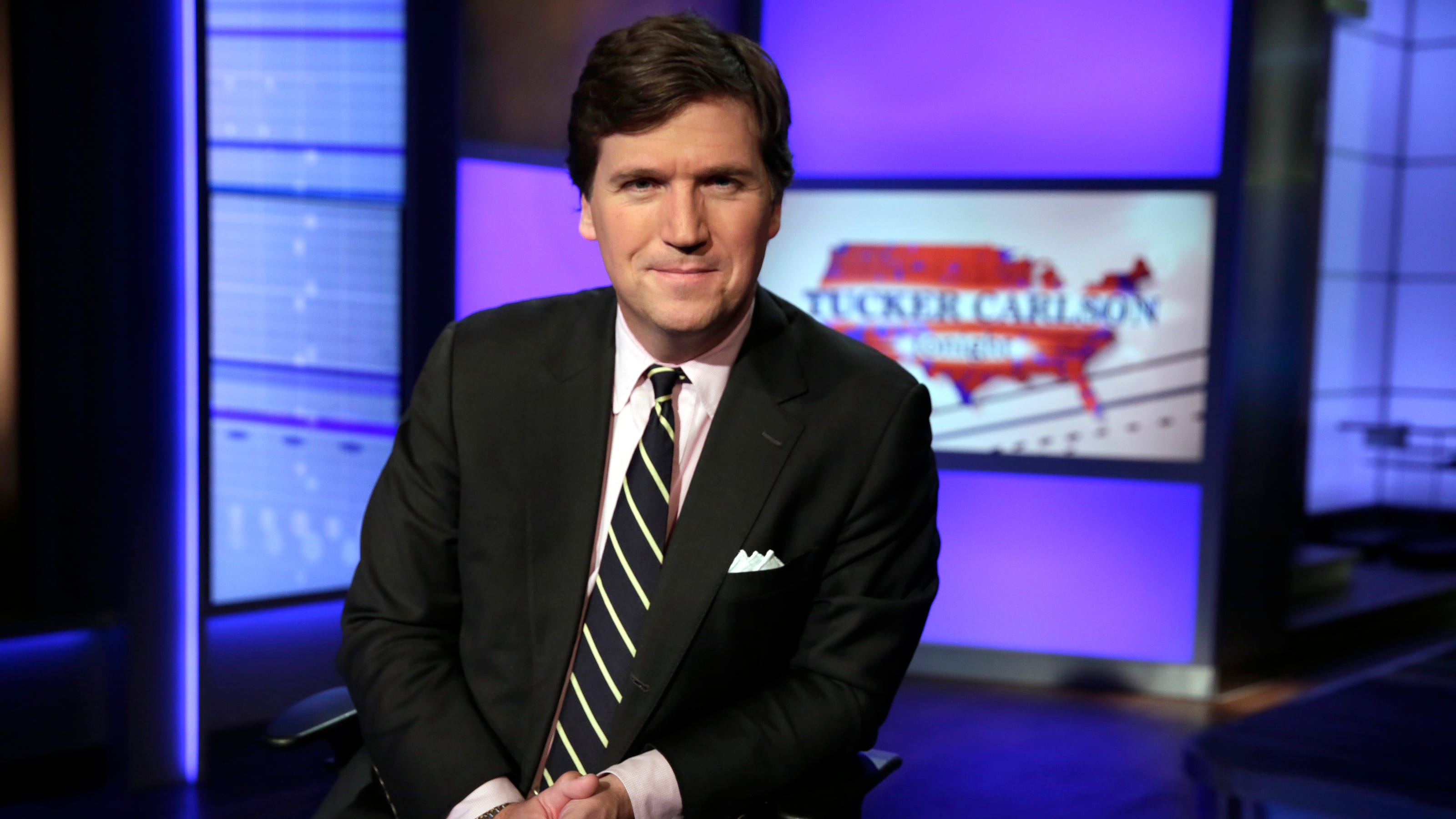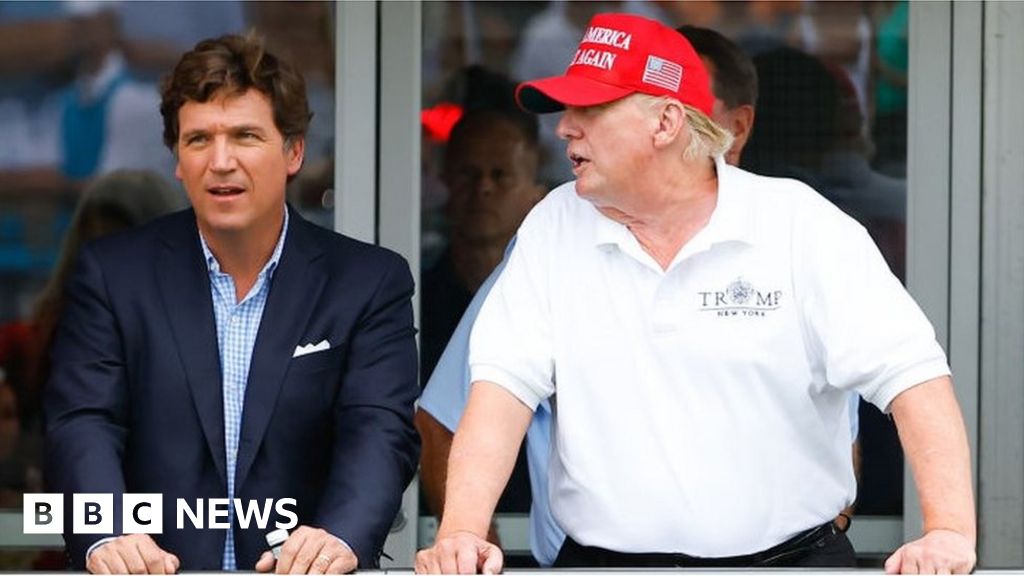Let’s get real here, folks. Tucker Carlson is one of the most polarizing figures in modern media, and the question of whether he’s anti-Israel has sparked heated debates across the political spectrum. From his outspoken commentary to his nuanced views on foreign policy, Carlson’s stance on Israel is a topic worth exploring. But is he really anti-Israel, or is it just another layer of the complex narrative he weaves on his show? Let’s dive in and find out.
When you hear Tucker Carlson’s name, you probably picture a guy who’s not afraid to ruffle some feathers. Whether you love him or hate him, there’s no denying that he’s a major player in the world of political commentary. But the question of whether he’s anti-Israel isn’t as straightforward as it seems. It’s more like a puzzle with missing pieces that we’re trying to put together.
Now, before we jump into the nitty-gritty details, let’s set the stage. Tucker Carlson isn’t just another talking head on TV. He’s a media powerhouse who has a massive influence on public opinion. So, when people accuse him of being anti-Israel, it’s not something to take lightly. It’s a big deal, and it’s worth examining from all angles.
Read also:Peter Gotti The Untold Story Of A Mafia Legend
Who is Tucker Carlson? A Quick Bio
Before we dive into the controversy, let’s take a moment to understand who Tucker Carlson really is. Born on May 14, 1969, in Salem, Oregon, Carlson grew up in a family that valued education and intellectual pursuits. His father, Richard Carlson, was a law professor, and his mother, Nancy Carlson, worked as a teacher. Tucker attended a prestigious boarding school and later graduated from Harvard University with a degree in government.
Here’s a quick breakdown of his career highlights:
- Started his career in journalism at a young age, working for various publications like The Weekly Standard.
- Co-founded The Daily Caller, a conservative news website that gained significant traction.
- Became a household name as the host of "Tucker Carlson Tonight" on Fox News, where he tackled controversial topics head-on.
Now, let’s take a look at some key facts about Tucker Carlson:
| Full Name | Tucker Scott Carlson |
|---|---|
| Date of Birth | May 14, 1969 |
| Place of Birth | Salem, Oregon |
| Education | Harvard University (Government) |
| Profession | Television Host, Political Commentator |
What Does "Anti-Israel" Really Mean?
Let’s pause for a second and define what we mean by "anti-Israel." It’s not as simple as hating a country or its people. Being anti-Israel can mean opposing certain policies, questioning the actions of the Israeli government, or even criticizing the broader geopolitical dynamics in the region. It’s a term that gets thrown around a lot, but its meaning can vary depending on the context.
For some, being anti-Israel is synonymous with anti-Semitism, which is a serious accusation. But others argue that it’s possible to criticize Israel without being anti-Semitic. The line between the two is often blurry, and that’s where the debate gets tricky.
Carlson's Views on Israel: The Evidence
So, what exactly has Tucker Carlson said about Israel? Over the years, he’s made several comments that have raised eyebrows. Some of his critics point to specific episodes of his show where he questioned Israel’s actions or criticized U.S. support for the country. Others highlight his broader stance on foreign policy, which often emphasizes America First principles.
Read also:Exploring The Dark Corners Of The Web A Comprehensive Guide To Sites Gore
Here are a few examples of what Carlson has said:
- In one episode, he questioned the U.S. government’s unconditional support for Israel, suggesting that it might not always align with American interests.
- He’s also spoken about the influence of pro-Israel lobbies in Washington, D.C., implying that they may have too much sway over U.S. foreign policy.
- Carlson has occasionally highlighted human rights issues in the Israeli-Palestinian conflict, which some interpret as a critique of Israel’s actions.
Is He Really Anti-Israel?
The short answer is: it depends on how you define "anti-Israel." Carlson’s critics argue that his comments reflect a bias against Israel, while his defenders say he’s simply exercising his right to criticize a foreign government. It’s a classic case of "you say potato, I say potahto."
What we do know is that Carlson’s views on Israel are part of a larger narrative about his approach to foreign policy. He often emphasizes the importance of putting American interests first, which sometimes puts him at odds with traditional allies like Israel.
Understanding Carlson's Foreign Policy Stance
To fully grasp Carlson’s views on Israel, you need to understand his broader approach to foreign policy. He’s a staunch advocate of the America First philosophy, which prioritizes U.S. interests over international alliances. This perspective shapes how he views relationships with countries like Israel.
Here are some key points about Carlson’s foreign policy stance:
- He believes that the U.S. should focus on domestic issues rather than getting involved in foreign conflicts.
- He questions the wisdom of unconditional support for any country, including Israel.
- He often highlights the influence of powerful lobbies in shaping U.S. foreign policy, suggesting that these groups may not always have America’s best interests at heart.
How Does This Relate to Israel?
Carlson’s America First philosophy means that he’s less likely to support policies that prioritize Israel’s interests over America’s. While this doesn’t necessarily make him anti-Israel, it does explain why he sometimes questions the U.S.-Israel relationship. It’s all about priorities, folks.
What Do the Critics Say?
Not surprisingly, Carlson’s comments about Israel have drawn criticism from various quarters. Some accuse him of harboring anti-Semitic sentiments, while others argue that his views are simply out of touch with reality. Let’s take a closer look at what his critics are saying.
Here are a few common criticisms:
- He’s accused of downplaying Israel’s security concerns in the face of existential threats.
- Some critics claim that his comments reflect a broader pattern of anti-Semitism in conservative circles.
- Others argue that his focus on pro-Israel lobbies is a thinly veiled attempt to delegitimize Jewish influence in Washington.
Is There Any Truth to These Accusations?
It’s hard to say for sure. Carlson has repeatedly denied any anti-Semitic bias, and many of his colleagues and supporters back him up. At the same time, his critics point to specific comments and patterns of behavior that they believe support their claims. It’s a classic case of "he said, she said."
What Do the Supporters Say?
On the flip side, Carlson has a large and loyal following who defend his views on Israel. They argue that he’s simply exercising his right to criticize a foreign government and that his comments are often taken out of context. Let’s hear what his supporters have to say.
Here are a few common arguments from Carlson’s supporters:
- He’s not anti-Israel; he’s just skeptical of U.S. involvement in foreign conflicts.
- His comments about pro-Israel lobbies are valid criticisms of the influence of money in politics.
- He’s been unfairly labeled as anti-Semitic by those who disagree with his views.
Is There Any Merit to These Claims?
Again, it’s a matter of perspective. Carlson’s supporters argue that he’s being unfairly targeted for expressing unpopular opinions. They point out that criticizing Israel doesn’t automatically make someone anti-Semitic, and that questioning U.S. foreign policy is a legitimate exercise of free speech.
Is Tucker Carlson Anti-Israel? The Verdict
After examining the evidence, it’s clear that the question of whether Tucker Carlson is anti-Israel isn’t as black and white as some might think. His views on Israel are part of a larger narrative about his approach to foreign policy, and they reflect his commitment to putting America First. While some of his comments may come across as critical of Israel, they don’t necessarily mean that he’s anti-Israel.
At the end of the day, it’s up to you to decide where you stand on this issue. Are you convinced by Carlson’s defenders, or do you side with his critics? Whatever your opinion, one thing is certain: Tucker Carlson isn’t afraid to speak his mind, and that’s why he continues to be such a polarizing figure in the world of media.
Final Thoughts and Call to Action
So, there you have it, folks. The debate over whether Tucker Carlson is anti-Israel is far from over, and it’s likely to continue for years to come. But one thing is clear: this issue highlights the complexity of foreign policy and the importance of having open and honest discussions about it.
Now it’s your turn to weigh in. Do you think Tucker Carlson is anti-Israel, or is he just exercising his right to criticize a foreign government? Leave your thoughts in the comments section below, and don’t forget to share this article with your friends and family. Together, we can keep the conversation going and make the world a better place, one opinion at a time.
Table of Contents


